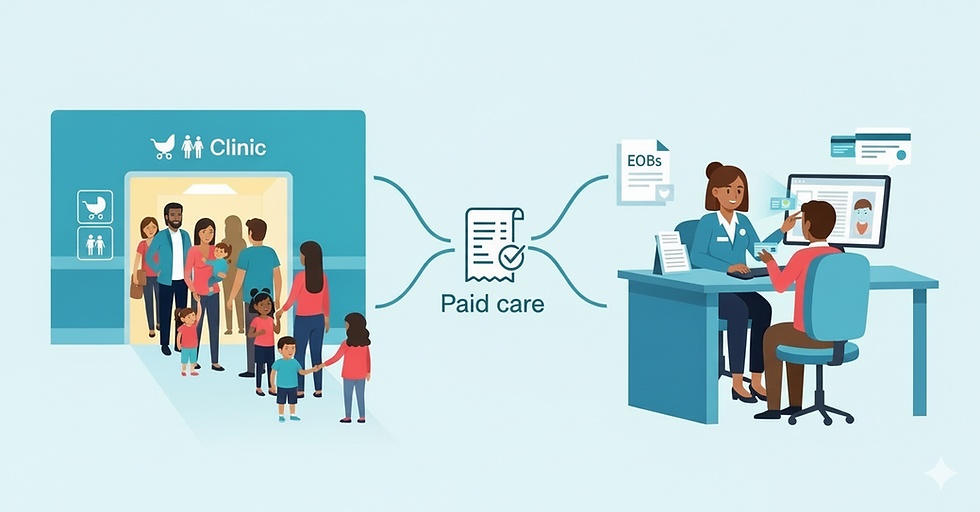Strengthening Mental Health Parity: What You Need to Know About Recent Regulatory Changes (MHPAEA)
- Nicholas Burt, LMFT

- May 18, 2024
- 2 min read
The landscape of mental health parity is undergoing significant changes in 2024, with new regulations and enforcement updates aimed at ensuring equal coverage for mental health and substance use disorder (MH/SUD) benefits. As a mental health provider, staying informed about these changes is crucial for compliance and optimizing your billing practices.

The Concept of "Meaningful Benefits"
In February 2024, proposed regulations under the Mental Health Parity and Addiction Equity Act (MHPAEA) introduced the requirement for "meaningful benefits" in MH/SUD coverage. This means that if a health plan offers mental health benefits, these must be substantial and comparable to those provided for medical/surgical (M/S) conditions across all classifications, including inpatient, outpatient, in-network, out-of-network, emergency care, and prescription drugs (The National Law Review).
The term "meaningful benefits" aims to prevent health plans from providing nominal or insubstantial mental health benefits. For example, a plan that covers autism spectrum disorder (ASD) but excludes key treatments like applied behavior analysis (ABA) therapy would violate these standards. Similarly, excluding nutrition counseling for eating disorders, a primary treatment, from coverage would also be non-compliant (The National Law Review).
Enhanced Enforcement Efforts
In May 2024, updates on MHPAEA enforcement highlighted ongoing efforts by federal agencies to ensure compliance with these parity requirements. These efforts include more stringent enforcement actions and new guidance for health plans to analyze and mitigate disparities between MH/SUD and M/S benefits (Healthcare Law Insights).
Federal agencies are particularly focused on nonquantitative treatment limitations (NQTLs) such as prior authorization requirements, network adequacy, and other factors that can restrict access to mental health services. Health plans must now track and publish data on the impact of these NQTLs and demonstrate that they do not disproportionately limit access to MH/SUD services compared to M/S services (Healthcare Law Insights).

Implications for Mental Health Billing
These regulatory changes have direct implications for mental health billing practices. Providers must ensure that their billing codes and practices align with the new parity requirements to avoid claim denials and compliance issues. This involves:
Reviewing and Updating Billing Codes: Ensure that your billing codes reflect the comprehensive and meaningful benefits required under the new regulations.
Compliance with NQTL Standards: Familiarize yourself with the nonquantitative treatment limitations and ensure that your billing practices do not inadvertently create barriers to access for mental health services.
Documentation and Data Analysis: Maintain thorough documentation and analyze outcomes data to demonstrate compliance with parity standards. This may include tracking patient outcomes and treatment efficacy.
Partnering with Bridgeway Billing
Navigating these regulatory changes can be complex and challenging. At Bridgeway Billing, we specialize in helping mental health providers optimize their billing practices and ensure compliance with all regulatory requirements. If you have any questions or need assistance in updating your billing processes, don't hesitate to reach out to us. Our team of experts is here to support you in delivering the best care to your patients while maintaining financial health and compliance.
Stay informed and proactive in adapting to these changes to ensure that your practice not only meets regulatory standards but also provides the highest quality care to your patients. Contact Bridgeway Billing today to learn more about how we can help you navigate the evolving landscape of mental health billing. info@bridgewaybilling.net




Comments